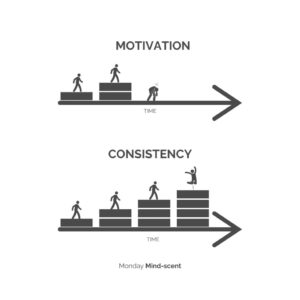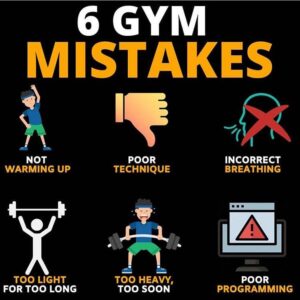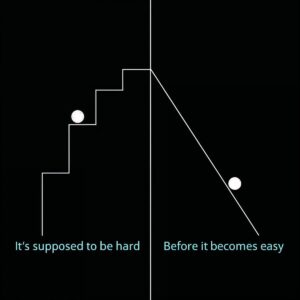When it comes to fitness, most people believe they need to make drastic changes overnight — long workout sessions, strict diets, and intense routines. But the truth is, lasting results come from small, consistent steps.
💡 Think of it this way: fitness is not about perfection, it’s about progress.
Introduction: Why Small Steps Matter More Than Big Leaps
When most people think about fitness transformations, they imagine dramatic before-and-after photos, strict diets, grueling workout sessions, and overnight results. Social media often exaggerates this idea by showing extreme weight loss or shredded physiques in a short time. This creates a dangerous belief that fitness is about radical, all-or-nothing changes.
But here’s the truth: lasting fitness results rarely come from extreme measures. They come from small, consistent transformations practiced daily.
Think about it: one healthy meal won’t make you fit, just as one slice of pizza won’t make you unhealthy. It’s the small habits you repeat over time that define your fitness journey. Just like compound interest grows wealth in finance, small fitness habits compound into big health benefits.
This article will take you deep into how micro-transformations in your daily routine can lead to significant, life-changing results in fitness. Whether your goal is fat loss, muscle gain, or overall health improvement, you’ll see why focusing on small steps is not only more sustainable but also more powerful.
The Power of Small Transformations
1. The Psychology of Habits
Human beings thrive on habits. According to behavioral science, nearly 40–50% of our daily actions are driven by habits rather than conscious decisions. That means if you want to change your fitness level, you don’t need to rely on constant willpower—you need to reshape your habits.
Starting small is the best way to reprogram habits. For example, if you aim to start exercising, committing to just 5 minutes of activity daily is far more sustainable than jumping into a 1-hour workout on day one. The brain resists drastic change but welcomes small, manageable shifts.
2. Science Behind Micro-Progress
Studies in behavioral psychology highlight something called the “aggregation of marginal gains.” This principle suggests that improving multiple small things by just 1% leads to massive overall progress.
Let’s apply this to fitness:
-
Drink one extra glass of water daily → Better hydration and energy.
-
Add 10 push-ups daily → Stronger muscles over weeks.
-
Sleep 20 minutes earlier → Improved recovery and hormones.
Each small improvement may seem insignificant in isolation, but together, they transform your health in a way that feels effortless.
Everyday Fitness Transformations That Make a Big Difference
1. Nutrition Changes
Nutrition often feels overwhelming because people try to follow strict diets. Instead of cutting out everything at once, start with small swaps:
-
Replace soda with sparkling water.
-
Add a serving of vegetables to one meal daily.
-
Switch fried snacks with roasted nuts.
-
Use smaller plates to naturally eat less.
Over months, these choices drastically reduce calorie intake, improve digestion, and help weight management without making you feel deprived.
2. Movement & Exercise
You don’t need to spend hours in the gym to get results. Start with 10–15 minutes of daily movement:
-
Take stairs instead of the elevator.
-
Do bodyweight squats or push-ups during TV breaks.
-
Walk while talking on the phone.
-
Stretch every morning.
These micro-activities build endurance and strength. Eventually, they prepare you to take on structured workouts naturally, without forcing it.
3. Sleep & Recovery
Many people underestimate the role of rest. Poor sleep can ruin metabolism, increase cravings, and reduce workout performance. Simple changes like:
-
Setting a consistent sleep schedule.
-
Avoiding screens 30 minutes before bed.
-
Drinking herbal tea instead of late-night coffee.
These small tweaks improve sleep quality, leading to better fat loss and muscle recovery.
4. Hydration & Stress Management
-
Carry a water bottle and aim for one refill by afternoon.
-
Practice deep breathing for 2 minutes daily.
-
Take short breaks during work to stretch.
These micro-habits boost energy, reduce stress hormones, and support overall wellness.
Real-Life Examples of Small Steps Leading to Big Fitness Changes
Example 1: The 10-Minute Walker
Rahul, a 32-year-old office worker, struggled with weight gain. Instead of joining a gym, he committed to walking 10 minutes after lunch and dinner daily. Within 6 months, he had lost 8 kg, felt more energetic, and naturally built the desire to jog.
Example 2: The Soda Swap
Neha loved soft drinks and consumed 2 cans daily. She reduced it to 1 can and replaced the other with lemon water. Over a year, she avoided nearly 30,000 calories—the equivalent of losing almost 4 kg of body fat—without changing anything else.
Example 3: The Bedtime Shift
Arjun, a night owl, started going to bed just 20 minutes earlier. This tiny change reduced his late-night snacking and improved his gym recovery. Within 3 months, he noticed visible muscle definition.
These stories prove that fitness doesn’t require massive changes—just consistent, small steps.
The Compounding Effect of Small Steps
Think of small changes as drops of water filling a bucket. At first, progress is invisible. But eventually, the bucket overflows. That’s the power of compounding in fitness.
1. Habit Stacking
Pairing a new habit with an existing one makes it stick. Example:
-
Do 10 squats after brushing your teeth.
-
Drink a glass of water before your morning coffee.
-
Meditate for 2 minutes right after waking up.
2. Kaizen Philosophy
The Japanese principle of Kaizen (continuous improvement) teaches us to make 1% better choices daily. Applied to fitness, it means improving slowly, but steadily, without pressure.
3. The Snowball Effect
Once you see small wins—like looser clothes, better stamina, or improved mood—you naturally build motivation. These results push you to make bigger changes effortlessly.
How to Create Your Own Small Transformations
-
Start with Awareness – Track your current habits (food, sleep, exercise).
-
Choose One Micro-Habit – Pick something simple (5 push-ups, 1 fruit a day).
-
Track Progress – Use a journal or app to stay consistent.
-
Celebrate Small Wins – Reward yourself for consistency, not perfection.
-
Expand Gradually – Add more habits once the first feels natural.
Remember: Don’t aim for 100 changes at once—start with one.
Common Mistakes People Make
-
Doing Too Much Too Soon – Leads to burnout.
-
Ignoring Recovery – Overtraining without rest slows progress.
-
Obsessing Over Scale Weight – Fitness is also about energy, strength, and mental health.
-
Comparing to Others – Everyone’s journey is unique.

Staying Motivated for the Long Run
-
Mindset Shift – View fitness as a lifestyle, not a temporary project.
-
Accountability – Share goals with a friend, trainer, or online group.
-
Non-Scale Victories – Track energy levels, clothing fit, and mood.
-
Visual Reminders – Keep progress photos or habit trackers visible.
Motivation is not about hype; it’s about discipline built through small wins.
Conclusion: Start Small, Stay Consistent
Big transformations aren’t built on drastic diets or exhausting workouts—they’re built on tiny steps repeated daily.
-
A glass of water instead of soda.
-
10 push-ups instead of none.
-
20 minutes of extra sleep instead of scrolling.
Over weeks and months, these choices compound into a healthier, stronger, and more confident version of yourself.
👉 Remember: Your big fitness journey begins with today’s smallest decision. Take one step now, and let the power of consistency change your life.













Big fitness goals can feel overwhelming—but what if the secret to transformation isn’t about drastic diets or long workouts, but tiny, consistent actions that compound over time?